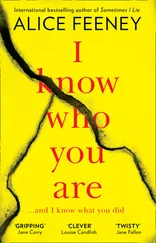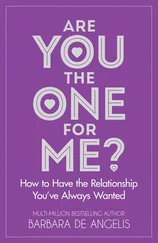I still have copies of the obituaries that ran in all the papers. “Jennifer Jones, 12; Peace Ambassador Killed in Plane Crash,” said the New York Times. It was a charter flight, scheduled to fly from Boston Logan to Waterville, Maine, because Jenny had been invited to address students at Colby College. She made a lot of appearances at schools around the country in those days. She’d narrate a slide show of her trip to the USSR and then take questions.
“Your moon landing was Gollywood special effects,” said Svetlana’s reply. (Because there is no equivalent of the letter H, Russians say “Gollywood,” not Hollywood.) “Staged spectacle to win Space Race.”
I was angry now. This person was comparing one of my country’s greatest achievements to the likes of a Jerry Bruckheimer film. I was about to type a flip response— “Did you read that in Pravda ?” —when the doubt crept in. Could I prove that we had actually landed on the moon? It was theoretically possible, I realized with a queasy feeling, that Neil Armstrong had taken those famous steps across a stage on a Hollywood back lot. It had never before occurred to me that we hadn’t actually walked on the moon. It was one giant step forward for mankind. Wasn’t it? Was the supposed moon rock embedded in one of the stained-glass windows of the National Cathedral just detritus from a local construction site? I felt like I did when I finally learned the truth about Santa Claus. It was humiliating to have been so naïve, so full of faith. My second-grade classmates scoffed at me. Why was I the last to know? I remember asking my mother.
The thing is, they never actually found Jenny’s remains. The plane that crashed was a twin-engine, unpressurized, fifteen-seater (though only four passengers—Jenny, her parents, and her manager—were on board that day), and it went down off the coast. When the plane disappeared from the radar screen, a search went out, and the wreckage was found the next day, but the bodies were never recovered. And the cause of the crash remains mysterious. The plane was a Beechcraft 99, a model that was not large enough for the FAA to require a black box. So in the aftermath the investigation was hindered by the absence of a cockpit voice recorder and flight data information. And the nearest airport—Portland, Maine—had no radar data to show exactly when and where the plane had disappeared. According to the airport, the flight had been chartered by Edmund Jones, but there was no forensic evidence that Jenny and her parents were on board. So technically Svetlana was right: it was possible that Jenny didn’t die.
Who did this Svetlana think she was? You can’t just write to someone out of the blue suggesting that her dead best friend is still alive. It was a cruel joke. I imagined my antagonist halfway around the world. She was almost certainly wearing too much makeup. The Russian girls I’d seen on TV looked like they were living in a funhouse mirror reflection of the 1980s: blue eye shadow applied with so little discretion that the effect was grotesque. Their garish, painted faces were a distorted and terrifying image of capitalism.
“Come to Moscow to see truth,” Svetlana wrote.
What was the truth? Jenny’s death was front-page news in at least thirty countries. If she was alive, where was she? How could she disappear without a trace? And did Svetlana actually know something, or was she just trying to be provocative?
“Moscow?” said my friend Juliet when I told her my plans. “Don’t you want to go somewhere warmer? Somewhere with palm trees, maybe? Don’t you know that the Cold War is over?”
“Moscow’s the new Prague,” said my friend Sam.
The three of us were stretched out in the quad, plucking blades of grass as we spoke, vaguely aware that we would never again have so much time to kill. Our graduation was the next day. “A lot of expats are moving there,” I said. I didn’t tell them that I’d been waiting to go there since 1983.
“Russian girls are hot,” Sam said. “At least until the babushka drop-off.”
“What makes you such an expert on the life cycle of Russian women’s looks?” I said.
“The babushka drop-off is well documented. Russian women are insanely hot when they’re young, and then, at like twenty-six, they turn into these fat old women wearing head scarves. There’s no in-between phase.”
Sam’s opinions came courtesy of his cousin Corinne, who had recently moved to Moscow to launch the Russian edition of an American fashion magazine. When I e-mailed her, Corinne offered me her guest room until I could find housing of my own.
“I have a place to stay,” I told my mother. “With an American. I’ll be safe.”
1982
MY MOTHER SAYS we’re going to have an adventure.
Where are we going? I want to know.
It is a Saturday morning in the middle of March. The cherry blossoms have started to bloom, and I hope that we are going down to the Mall to see them. This is something we do every spring. The cherry blossoms are so beautiful that it surprises me every year. So delicate, so auspiciously pink.
No, not to the Mall, my mother says. We are going to be detectives.
Like Harriet the Spy? I like Harriet the Spy so much that for two months when I was eight, I would eat nothing but tomato sandwiches.
Or Miss Marple, says my mother. She puts on her trench coat—in which she looks like a spy, or a glamorous Hollywood version of a spy—and fastens Pip’s leash. Her hair is tied up in a striped scarf. She hands me my yellow windbreaker—it is unseasonably chilly and damp—and we set out from the house.
What are we looking for? I ask as my mother begins walking briskly down our street toward Connecticut Avenue. Pip can tell that my mother’s on a mission. He falls into step on her left, mirroring her determined gait.
I like playing detective. After I read Harriet the Spy, I wandered the neighborhood with a pocket notebook and wrote down the license plate of any car I didn’t recognize.
Fallout-shelter signs, she says. The shelters are closed now, but some of the signs are still on the outsides of the buildings. Let’s see how many we can find.
I am nine years old. At my school we do 1960s-style duck-and-cover exercises, as if a classroom desk could protect any of us from nuclear bombs. I ask my mother why they closed the fallout shelters. She says they were expensive to maintain. She says that disarmament treaties in the 1970s made people relax. I don’t remember détente; all I know is dread.
We find our first sign on the back wall of my old elementary school. The sign has three cautionary yellow triangles, turned upside down, their tips pointing toward the basement. I was corralled out this back door during fire drills for years and never noticed the sign before, but now that I see it ( This is the closest shelter to our house—this is where we would have gone if we’d lived here in the 1960s, my mother says, her voice breathy with fear or excitement or both), it gives me the creeps. I can’t bear the idea of pressing into a dark basement with hundreds of neighbors. My mother says the shelters were stocked with supplies—food and water and medicine. You wouldn’t know how many days you’d have to stay down there, away from the radiation. The fallout could be deadlier than the explosion itself. But even if you survived the bomb, would you want to live in the wreckage left behind? To emerge from that dark space not into light but into a wasteland?
She snaps a picture of the sign. I stand beside her as she shakes the Polaroid, waiting for the image to emerge. It is, I think, the opposite of the overheated projector: instead of being melted away, the picture rises out of darkness like a figure out of the fog. There is something hopeful about watching the Polaroid develop. Look, she says, holding it out for me to see. Pip yaps. The fallout-shelter sign and the doorway it marks look faded and ineffectual. How could something so small save us?
Читать дальше












